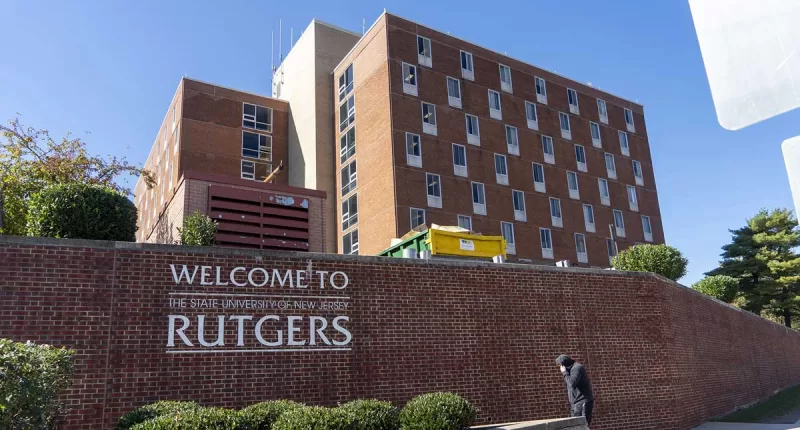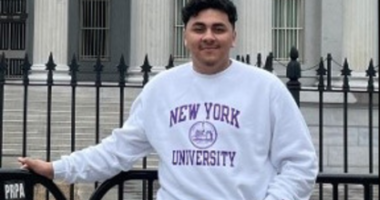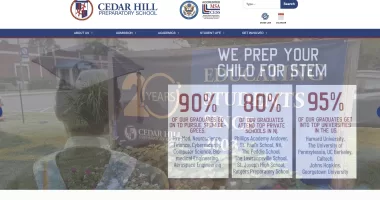Rutgers University Receives $39.7M Award from NIH to Promote Clinical and Translational Science.
The Rutgers Institute for Translational Medicine and Science has received $39,673,786 over seven years from the National Institutes of Health (NIH). Through the New Jersey Alliance for Clinical and Translational Science (NJ ACTS), this grant seeks to improve the infrastructure supporting clinical and translational science in New Jersey.
Beginning on May 1, 2024, the award will allow NJ ACTS to grow its statewide program, which was established in 2019 and aims to swiftly integrate research findings into patient treatment. Under the direction of Rutgers and in partnership with Princeton University, the New Jersey Institute of Technology, and RWJBarnabas Health, NJ ACTS promotes cooperative research initiatives to address operational and scientific issues in the healthcare system. An NIH grant of $29 million supported the founding of NJ ACTS in 2019.
The importance of this new funding was underlined by Rutgers Biomedical and Health Sciences Chancellor Brian Strom, who noted that it will advance clinical translational science and support crucial clinical trials. “This grant amplifies our ability to conduct vital clinical trials and train the next generation of scientists who will ensure New Jersey residents have access to the latest treatments,” Strom stated.
NJ ACTS has established a cooperative framework to expedite the conversion of research findings into enhanced patient care. In order to address systemic issues in clinical and translational research, this initiative brings together research teams made up of scientists, patient advocacy organizations, and community people.
Rutgers vice chancellor for translational medicine and science, Reynold Panettieri, emphasized the alliance’s accomplishments in establishing collaborations amongst academic, clinical, state, and community partners. “Our partnership with RWJBarnabas Health allowed us to expand our clinical research, connecting the basic science research done by our 200-plus investigators to patient care statewide,” Panettieri stated.
The first NJ ACTS funding came in handy during the COVID-19 outbreak. Rutgers was able to spearhead significant research projects because to the infrastructure, and it was the second-best global recruiter for Johnson & Johnson’s COVID-19 vaccine Phase 3 clinical trial. Underprivileged communities now have more access to COVID-19 testing because to the NJ Heroes Too outreach effort. Furthermore, Rutgers Health emerged as the lead institution for the identification of distinct serum markers for the NIH’s pediatric RECOVER Program, assisting researchers across the country in comprehending the long-term effects of COVID-19 on youngsters.
Under the 2019 funding, NJ ACTS accomplished a number of firsts:
– Created a Clinical Research Data Warehouse in collaboration with RWJBarnabas Health, a safe haven that complies with federal health laws and helps doctors and researchers learn more about diseases and therapies.
– Created a test program to support cutting-edge research in order to encourage cooperation among alliance members.
– Created the Clinical Research Coordinator Badge Program, which hastened the certification process for research support personnel and clinical trial personnel.
– promoted the professional growth of junior faculty members and trainees, which resulted in important research on subjects including the mortality rate of patients with gallstone disease after Medicaid expansion and the effect of parental mental health on children’s health.
With an emphasis on starting and promoting complicated non-oncology clinical trials, such as gene therapy, and establishing Rutgers as a top location for trial sponsors, the new award will further advance translational science in New Jersey.
– Creating networks for research that involves the community.
Improving the development of a diverse workforce, especially in the fields of implementation and dissemination science.
NJ ACTS will also give priority to expanding machine learning and artificial intelligence initiatives over the next seven years, as well as transferring evidence on opioid overdose prevention into practice. Creating algorithms for automatic COVID-19 detection from chest X-rays and recognizing drug side effects are two examples of this.
With the goal of improving health outcomes for its almost 9 million citizens, this substantial expenditure highlights New Jersey’s dedication to healthcare innovation and its position as a global leader in the field of medicine.
Here’s an interesting read on Cedar Hill Prep 4th Grader Triumphs at IAC Nationals, Eyes International Glory!.






1 comment